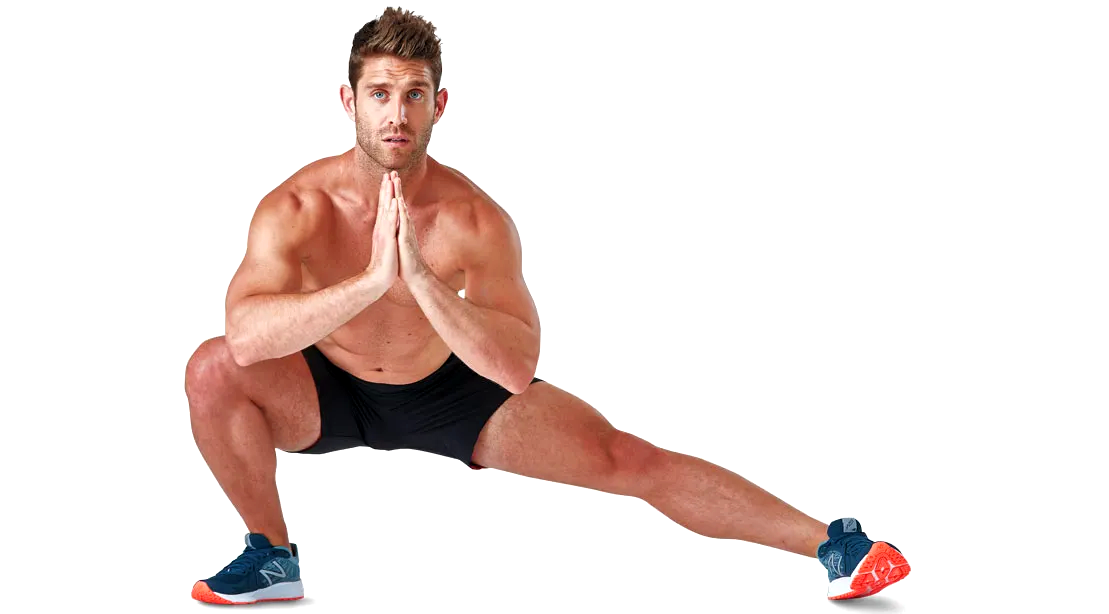Joint mobility is a fundamental aspect of our physical well-being. The ability to move our joints freely and without discomfort is essential for daily
Joint mobility is a fundamental aspect of our physical well-being. The ability to move our joints freely and without discomfort is essential for daily activities and our overall quality of life. Unfortunately, as we age or lead a sedentary lifestyle, joint stiffness and discomfort can become common issues. However, there is good news! You can improve your joint mobility with targeted exercises that not only alleviate pain but also enhance flexibility and overall health.
In this fast-paced world, where the demands of modern life can take a toll on our bodies, ensuring that our joints remain flexible and pain-free is crucial. Joint mobility exercises can be your key to maintaining an active and vibrant life. In this article, we’ll dive into the world of joint mobility, explore its significance, and guide you through a variety of exercises to enhance your flexibility and alleviate discomfort.
In this article, we will explore the importance of joint mobility and provide you with a comprehensive guide to effective joint mobility exercises.
Contents
- 0.1 Understanding Joint Mobility
- 0.2 The Importance of Joint Mobility
- 0.3 Common Causes of Joint Stiffness
- 0.4 Benefits of Joint Mobility Exercises
- 0.5 Getting Started: Preparing for Joint Mobility Exercises
- 0.6 Top Joint Mobility Exercises
- 0.7 Creating a Joint Mobility Routine
- 0.8 Tips for Successa
- 0.9 Incorporating Joint Mobility into Your Daily Life
- 0.10 Precautions and Safety Measures
- 0.11 Real-Life Success Stories
- 0.12 Conclusion
- 1 Frequently Asked Questions (FAQs)
Understanding Joint Mobility
Joint mobility refers to the ability of a joint to move freely and comfortably through its full range of motion. It is not only about the absence of pain but also the ease of movement. The health of the joint, as well as the muscles, ligaments, and tendons that surround it, all have an impact on mobility.
The Importance of Joint Mobility
Maintaining good joint mobility is essential for several reasons. It allows you to perform daily activities with ease and grace, from bending to tie your shoelaces to reaching high shelves. Additionally, joint mobility plays a significant role in injury prevention, as restricted joints can lead to compensatory movements that strain other parts of the body.
Common Causes of Joint Stiffness

Joint stiffness can occur due to various factors, such as aging, a sedentary lifestyle, injury, or medical conditions like arthritis. When joints become stiff, they can lead to discomfort and reduce the quality of life.
Benefits of Joint Mobility Exercises
Regular joint mobility exercises offer a multitude of benefits. They not only increase your joint’s range of motion but also reduce discomfort, enhance flexibility, and improve overall well-being. These exercises can be a game-changer for people of all ages, especially for those looking to stay active and pain-free.
Getting Started: Preparing for Joint Mobility Exercises
Before diving into joint mobility exercises, it’s essential to prepare properly. Wear comfortable clothing, choose a clean and quiet space, and remember to warm up your muscles to prevent injuries.
Read: Rheumatoid Arthritis: Everything You Want to Know
Top Joint Mobility Exercises
Neck Mobility Exercises
Your neck plays a pivotal role in your daily activities, from checking blind spots while driving to looking over your shoulder. Neck mobility exercises can help reduce tension and discomfort in this area.
To perform simple neck mobility exercises, gently tilt your head from side to side, forward and backward, and rotate it in a circular motion. Perform each movement slowly and deliberately to avoid strain.
Shoulder Mobility Exercises
Shoulder mobility is essential for tasks like lifting objects and reaching overhead. To enhance your shoulder mobility, try exercises like arm circles, wall angels, and shoulder rolls. These exercises can help reduce tension and improve the range of motion in your shoulders.
Elbow and Wrist Mobility Exercises
Proper elbow and wrist mobility are crucial for performing daily activities with ease. Simple exercises, such as wrist circles and elbow flexion and extension, can help maintain flexibility and reduce discomfort.
Spine Mobility Exercises
A flexible spine is vital for overall mobility and comfort. Engage in exercises like cat-cow stretches, spinal twists, and backbends to enhance the flexibility of your spine.
Hip Mobility Exercises
Hip mobility exercises are particularly important for activities like walking, running, and bending. Incorporate exercises like leg swings, hip circles, and hip flexor stretches to keep your hips mobile and pain-free.
Knee Mobility Exercises
Knee mobility is essential for walking, climbing stairs, and various sports activities. Try exercises like knee circles, knee extensions, and leg lifts to improve the range of motion in your knees.
Ankle and Foot Mobility Exercises
Last but not least, don’t neglect your ankles and feet. Exercises like ankle circles, toe taps, and calf stretches can enhance your lower limb mobility and reduce discomfort.
Creating a Joint Mobility Routine
To reap the full benefits of joint mobility exercises, it’s essential to create a routine. Consistency is key, and dedicating time each day to these exercises can lead to significant improvements in joint flexibility and comfort.
Tips for Successa
Here are some tips to make your joint mobility journey more effective:
- Listen to your body; don’t push yourself too hard.
- Focus on controlled movements.
- Breathe deeply and consistently during exercise.
- Stay hydrated to maintain joint lubrication.
- Seek professional guidance if you have specific health concerns.
Incorporating Joint Mobility into Your Daily Life
The beauty of joint mobility exercises is that they can be integrated seamlessly into your daily routine. Whether you’re at home, in the office, or outdoors, you can perform these exercises to keep your joints mobile and comfortable.
Precautions and Safety Measures
While joint mobility exercises are generally safe, it’s essential to exercise caution. If you have a medical condition or are uncertain about any practice, consult a healthcare professional before starting a new routine.
Real-Life Success Stories
Hear from individuals who have transformed their lives through joint mobility exercises. Discover how these exercises have improved their quality of life and provided lasting relief from discomfort.
Conclusion
Joint mobility exercises are a powerful tool for enhancing your quality of life. By dedicating time to improving your joint flexibility, you can reduce discomfort, prevent injuries, and continue enjoying an active and pain-free life. So, get started on your journey to better joint mobility today!
Frequently Asked Questions (FAQs)
Q1: How often should I do joint mobility exercises?
It’s recommended to perform joint mobility exercises at least three to five times a week for optimal results.
Q2: Can joint mobility exercises help with arthritis-related discomfort?
Yes, joint mobility exercises can provide relief and improve mobility for individuals with arthritis.
Q3: Are there age restrictions for these exercises?
Joint mobility exercises are suitable for people of all ages. However, consult with a healthcare professional if you have specific concerns.
Q4: How long does it take to see results from joint mobility exercises?
Results vary, but many individuals report feeling improvement within a few weeks of consistent practice.
Q5: Can I combine joint mobility exercises with other forms of physical activity?
Yes, combining joint mobility exercises with other physical activities can further enhance your overall mobility and well-being.

COMMENTS